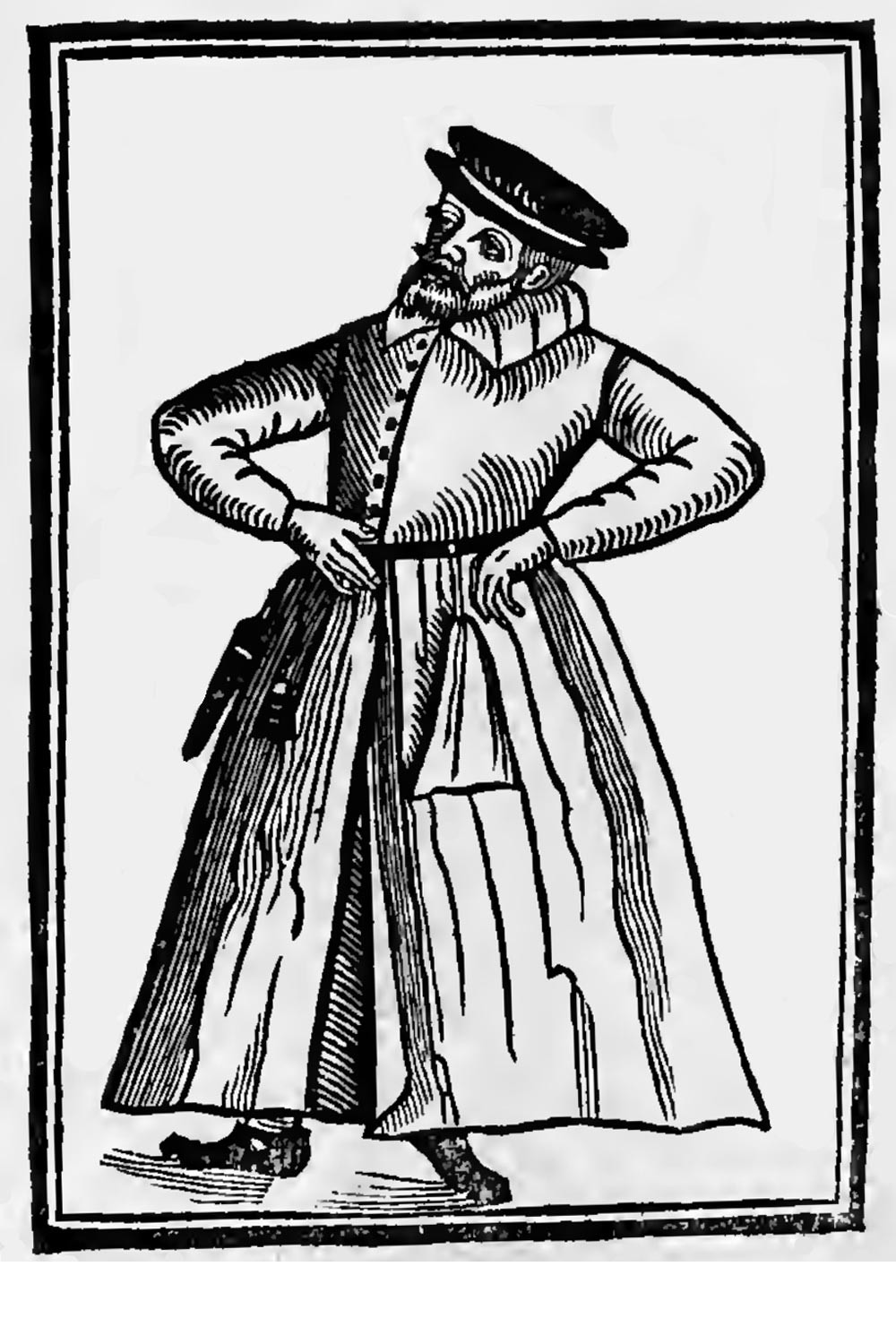
A spotlight on Shakespeare’s forgotten fool
From King’s Lynn to King Lear: discovering the lost genius behind Shakespeare’s funniest lines
In the historic heart of King’s Lynn, a town rich in festivals, art and cultural heritage, St George’s Guildhall stands proudly as the UK’s oldest working theatre. Since 1445, it has hosted captivating performances, its timbered beams echoing with tales of tragedy, romance and riotous farce. In recent years, remarkable discoveries and academic research have cast this local treasure into the national spotlight, lending weight to the long-held tradition that William Shakespeare himself once graced its stage.
Yet while the Guildhall’s connection to the great playwright grows ever brighter, another star who once trod those same floorboards remains dimly lit. Robert Armin, born and raised in Lynn, was the actor and writer who reshaped Shakespearean comedy, giving voice to the Bard’s most memorable fools and helping define the wit we still cherish today. However, in the very town he called home, his name is seldom spoken - and his legacy has long lingered in the wings.
Now, after centuries of neglect, Armin’s brilliance is being rediscovered by another local talent - comedian and researcher Tim FitzHigham is determined to return him to centre stage.
“It’s no exaggeration to say that without Armin, we wouldn’t have Blackadder, Fawlty Towers, Python or many of the other great British comedies,” says Tim, who serves as Creative Director at the Guildhall and Cultural Officer for the borough. “He fundamentally changed the direction of comedy in this country and, through his work with Shakespeare, arguably far beyond.”
Tim is currently pursuing the UK’s only PhD on Robert Armin at the Shakespeare Institute in Stratford-upon-Avon, making it his mission to revive the reputation of this underappreciated comic genius.
“I’d always liked Armin and felt a connection to him as, like me, he was a comedian born in King’s Lynn,” he explains. “I was amazed that people had forgotten that our town produced one of the most extraordinary forces in the history of drama. That felt like a real shame, so I decided to do something about it.”
Delving into archives across the country - and even a few abroad - Tim followed every thread of information he could find, gradually piecing together a clearer picture of Armin’s life. What he’s uncovered so far is astounding, revealing a legacy far richer than he ever expected.
Born around 1565, Armin was the son of a local tailor and spent his early years at 78 High Street, a modest house far removed from the grandeur of the Globe Theatre. Rather than follow in his father’s footsteps, he trained as a goldsmith, leaving Norfolk aged 16 to begin an apprenticeship at the Royal Mint in London. It was a profession that might easily have buried his true talent in obscurity - but fate, quick wit and a flair for language led him in another direction. The move from the quiet charm of Norfolk to the bustling capital opened the door to a more cosmopolitan world, drawing the young Armin into the orbit of the theatre, where he developed a deep fascination with the power of performance.
After reputedly besting Queen Elizabeth I’s jester, Richard Tarlton, in a chalked verse battle, Armin gained recognition for his comedic prowess and began to step into the limelight. His rise through London’s theatre scene led him to influence several acting troupes and ultimately caught the eye of the era’s greatest playwright, leaving an indelible mark on his work.

When Armin joined Shakespeare’s company, the Chamberlain’s Men, around 1599, he replaced the famously slapstick Will Kempe and introduced a very different kind of comic. Gone were the jig-dancing, rustic buffoons; in their place came complex, reflective clowns who cloaked insight and melancholy in irony and wit. It was Armin who inspired some of Shakespeare’s most unforgettable jesters - from Touchstone (As You Like It) to Feste (Twelfth Night), and perhaps most poignantly, the Fool (King Lear).
“All the plays of Shakespeare we have are versions that passed through Armin’s hands; they would’ve been very different without his ingenuity, and probably a lot less funny!” Tim notes. “While others delivered laughs, Armin brought layers, creating some of theatre’s most enduring fools and transforming comedy into something character-driven and profound.”
Beyond the stage, Armin was also a prolific and original writer. Works such as ‘Foole upon Foole’ and ‘A Nest of Ninnies’ showcase his distinctive voice - witty, empathetic and socially observant. His portraits of society’s eccentrics blurred the line between comedy and commentary, offering something closer to philosophy than farce.
Although listed among the principal players in Shakespeare’s First Folio, Armin died in 1615 with much of his legacy overlooked. That, however, is now beginning to change.
Envisioning a future where Armin’s talent is celebrated, Tim remains determined to discover more through his research while championing his importance in King’s Lynn. His efforts have already led to the installation of a green plaque outside the nail bar that now occupies Armin’s former home, and broader plans are in place to strengthen public engagement with his story - particularly through the renovation of St George’s Guildhall and continued exploration of its links to Shakespeare.
“It’s astonishing Armin remains so underrated despite his monumental influence,” Tim says. “Here’s someone who went out from Lynn to change the course of comedic drama, writing jokes so sharp we’re still laughing at them 400 years later. His legacy deserves far more recognition, and I feel it’s up to the town he came from to lead that revival.”
Visit stgeorgesguildhall.com to learn more about King’s Lynn’s enthralling Shakespearian connections.
